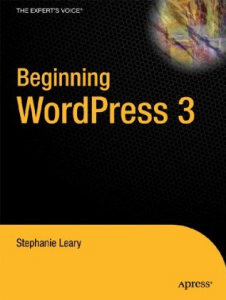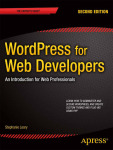
There’s Now a Name for the Micro Generation Born Between 1977-1983, and according to Dan Woodman at the University of Melbourne, it’s… Xennials. I’ve heard other names, quickly shrugged off: the grunge generation, the Oregon Trail generation, Generation Y. None quite fit. I don’t think Xennials does, either. It’s a mashup term, a shipper name for the two things you desperately want to bring together.
The thing is, a name produced by Venn diagramming labels already given to other generations doesn’t fit us. We’re not the overlap between the Gen X and Millennial generations. We’re the gap between them–and the bridge.
Our salient characteristic is not the seven years of our birth. It’s that we spent our seven teenage years in the mid ’90s, specifically 1995 and 1996: the years the internet matured and home computers became affordable for the middle class.
Before that, if you’d been on the internet at all, you were very likely an upper-middle class subscriber to one of the companies that tried to create walled gardens of insipid internet-delivered pablum: Prodigy, CompuServe, or AOL (in that order). After 1996 or so, it became commonplace to have one of those services, or a connected computer you could use a little bit at school, or dialup at home through a local ISP, or a shiny new ethernet port in the wall of your dorm or office–and to use those things to explore the parts of the internet that hadn’t been built or curated by your provider. The internet at large was pervasive among the middle class by the late 90s. The original providers started eating their oxen and dying of dysentery before the boom years finished them off entirely.
And the important thing for our generation is that we encountered the new, wild-grown internet when we did. It arrived in our homes and high schools just as we were shaping our worldviews, and it wrenched us from local to global perspectives. We went online, we looked up fans and hobbyists talking and teaching about our favorite things, and we made friends. They were from all over the world! It was cool!
It was more than cool;, as it turned out: it gave us an ambient awareness of the daily lives of people in other countries. Twitter, Tumblr, and Facebook have amplified this awareness to a constant scream, but it was there on mailing lists and in IRC chats and in newsgroups. Our teenage pen-pals were internet users, and we got to talk to them almost daily.
Generation X were mostly adults when they underwent the internet paradigm shift, with mixed results. In my work, I encounter a lot of Gen Xers who understand the usefulness of the web (or hell, built the thing), but are just not enthused about social media networks. They’re on Facebook so they can share pictures of their kids with their parents… and that’s about it. If they work in a field that doesn’t keep them online all day, it’s easy for them to retreat to the local sphere of awareness.
Millennials didn’t have to shift their paradigms at all; for them, the internet was always there once they started school, woven throughout their childhoods and educations. They grew up thinking globally–though somewhat hobbled by their incomplete social studies educations, since they’re also the No Child Left Behind generation.
Our generation did have to shift paradigms, and we didn’t yet have many teachers or parents who could explain this new world to us. We walked that bridge from analogue childhood to digital adulthood, one by one. Some of us didn’t take to it–the kinds of people who didn’t enjoy dinking around on dialup on a Saturday afternoon, soaking up the world’s coolest-looking assembly of human knowledge, largely stayed on the analogue side, and those folks are camouflaged as Gen X.
Those of us who work online, or found online communities we couldn’t have locally, have built our lives with those connections in mind. We’re camouflaged as Millennials.
But we are neither. In reality, we’re a single group that is sharply defined by the fact that we stumbled into the new global internet paradigm on our own. If Prodigy, CompuServe, and AOL built the bridges between DARPAnet and the internet we have today, then our generation are those bridges’ travelers.

We’re the Prodigy kids, the proto-Millennials who showed up to the internet party a little early, accompanied by the buzz-click-whir of dialup connections in progress. We’re the salty aunts sliding drinks over to our Millennial friends, explaining how we remember childhood before the internet and adulthood before 9/11. We remember the world we thought we were graduating into until the Boomers’ post-9/11 isolationism, jingoism, and Islamophobia settled into our institutions like a virus for which we’d been vaccinated.
We have the advantages of pre-Bush era educations, memories of how things were done before we relied on computers, and a global network of friends and family who help us see news and perspectives other than our local 6 o’clock anchor’s. There’s a role for us to play in this post-Trump world. I trust we’ll find it.




I was a Compuserve myself.
and just to be pedantic
According to Dan Woodman, the sociologist mistakenly named in Australian media as the man who invented the term, xennials is a fun concept for a quiz or a poll but becomes problematic when we treat a cohort of people like one person with one set of values.
Quietly tiptoeing away from becoming the face of the xennial generation, Woodman conceded that there is “something useful in the concept of generations because it reminds us of social context and the experiences that shaped our lives”. But not much more than that.
https://www.theguardian.com/culture/2017/jun/27/are-you-a-xennial-take-the-quiz
Hello Stephanie!
I happened upon your blog from the HTML2 plugin page. And I couldn’t agree more with the sentiments of your post. Being from the same era (Though from the east, where the timeline is slightly off), I can feel exactly the same, especially about how we know about how things were done before the internet. This, I think puts us amongst the most adaptive of the current set of people.
Awesome post, and a fantastic plug in!
Best,